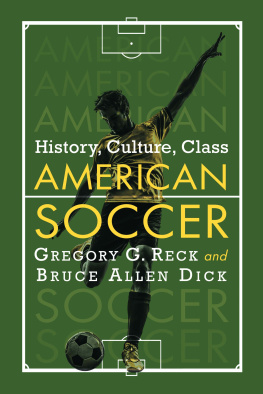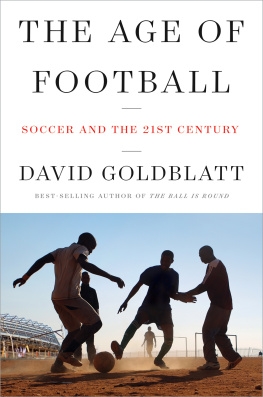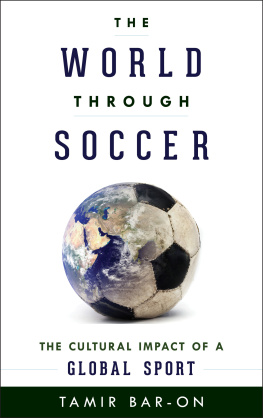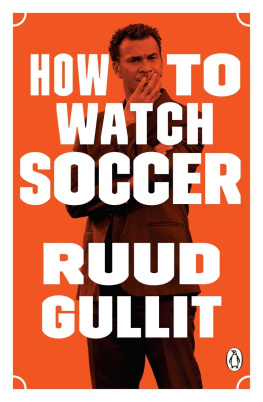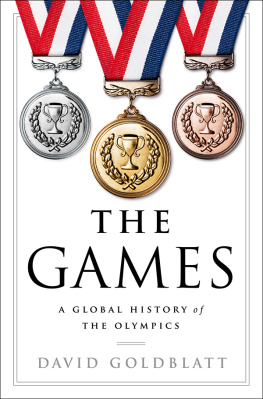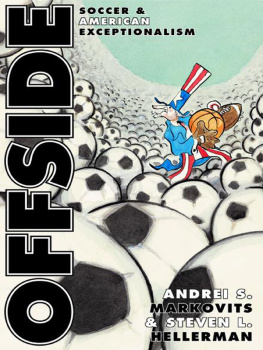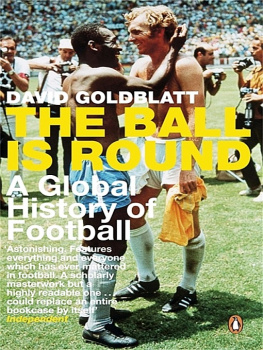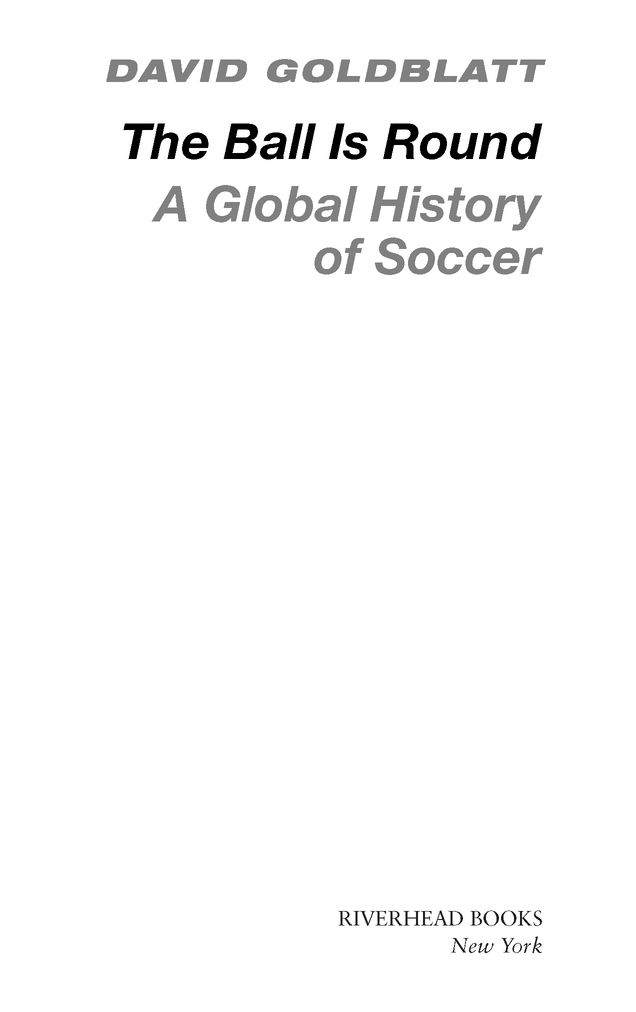Table of Contents
A scholarly masterwork but also a highly readable one. The scope is astonishing. It is a book one would be proud to write, and it could replace an entire bookcase by itself. The Independent
Since it became a worldwide phenomenon, nobody has attempted to write an overall history of the game. Now David Goldblatts stunning book will be the measure against which all other such volumes are judged. Weighing in at more than nine hundred pages, this might seem a mighty read. But Goldblatt has packed the book with detail, stories, match reports, and rumination. It can be read cover-to-cover or dipped into. It is both a magnificent work of synthesis of other peoples research and a voyage into entirely new territory. I found myself zipping around the globe, and across time, from Saudi Arabia to Ireland, from Bolton to Calcutta.... It is difficult to do justice to the range of this work, which moves from a solid account of the origins of the game, on to tactics, globalization, administration, and corruption.... Elegant, witty, stylish, and crisp, the language of the book moves swiftly forward, taking the reader with it.... There is more food for thought in the few pages of the conclusion than in a hundred ghostwritten biographies of rich twentysomethings. Quite simply, The Ball Is Round takes football history to a new level. The Guardian
A comprehensive history of world football, immense in scope and scholarship. The Daily Telegraph (London)
An impeccably researched and impressively scholarly work that contains just about all you will ever need to know about how and why a game played in a handful of nineteenth-century English public schools rose to become the global industry it is today. Belfast Telegraph
It is in its sheer span that Goldblatts work takes ones breath away. No one has ever attempted something quite like this in the history of any sport, let alone football. When Goldblatt reveals that his goal is to trace, through a history of football, the Faustian bargain that all modern societies have made with the forces of money and power, one is half-incredulous at the amibition. But he nets the goal all the same, with the flair of a Maradona taking on the English defense. The Calcutta Telegraph
The ultimate book.SoccerBlog.com
An astonishing void: official history ignores football. Contemporary history texts fail to mention it, even in passing, in countries where it has been and continues to be a primordial symbol of collective identity.
I play therefore I am: a style of play is a way of being that reveals the unique profile of each community and affirms its right to be different.
Tell me how you play and I will tell you who you are.
Eduardo Galeano
The only thing that has never changed in the history of the game is the shape of the ball.
Denis Law
Foreword to the American Edition
Everywhere else in the universe this book is selling, or not, as The Ball Is Round: A Global History of Football. In America it is A Global History of Soccer. As you can imagine, given the length and subject matter of this book, there would be an awful lot of alterations to make if we were to change every use of football to soccer. So, youre getting a forewords worth of soccer and then its football.
The global association of football with soccer rather than gridiron reflects a central theme of The Ball Is Round, for it is the only history of the modern world that I know in which the United States is a transatlantic curiosity rather than a central attraction. The British historian Eric Hobsbawm encapsulated this oddity when he wrote The twentieth century was the American century in every way but one: sport. This is not exactly news to anyone, but it remains an extraordinary and under-explored anomaly; an almost unique reversal of the dominant patterns of global influence and power.
The Ball Is Round attempted to answer Hobsbawms question by looking at the reasons why soccer had fared so poorly in the United States. The main lines of the argument are well known. Basically, soccers timing was bad. By the early 1870s when soccer, played according to the FA rules of 1863, was beginning in America, baseball had already claimed the emotional and cultural high ground of Americas emerging sports culture.
Through the rest of the nineteenth century, soccer thrived in the United States amongst certain working-class communities, but was indelibly marked as European, foreign and in some quarters as un-American. The predominance of ethnic affiliations in team namesfrom Hakoah New York to Brooklyn Hispanois testament to both soccers deep local roots and its still unbroken connections to the old world. The cultural space and market share available to soccer was further narrowed over the twentieth century as, successively, ice hockey, American football, and basketball went professional.
Despite this, America did manage to sustain a small soccer culture and generate professional leagues, but none with the luck or the business model to survive. The current incarnation, Major League Soccer (MLS), may be able to overcome this history. Launched on the back of the 1994 World Cup, it has survived and even begun to prosper. The league has made uneven but increasingly serious attempts to draw upon Americas vast reservoirs of participation in womens soccer, youth soccer, and in the soccer traditions of the new Latino communities. The recent arrival of new soccer-specific stadiums, new franchises, rich investors, reasonable crowds, and, finally, a TV deal that the league gets money for rather than paying out on are all considerable advances.
The arrival of David Beckham at L.A. Galaxy in summer 2007 signals a new departure in MLSs strategy and ambition. The highly restrictive but egalitarian wage policy of the last decade has been modified to allow in a small number of highly paid imports who will, it is hoped, significantly raise the quality and profile of the game. Becks himself seems to sense the immensity of the mission when he told Good Morning America : Im going for the life, of course, for my kids to enjoy it and my wife to enjoy it, but the main thing for me is to improve the soccer and to improve the standard and to be part of history really.
Seen from Europe, Beckhams departure for L.A. appears the perfect terminus for a career in which brand and image have always predominated over form and performance (which is not to ignore or diminish Beckhams considerable sporting talents or his heart and tenacity). Beckhams arrival suggests that MLS is now ready to try and add some glitz to the game in its bid to go mainstream. Minor masters of the dark arts of self-promotion and public relations, the Beckhams have constructed a global brand of considerable power. Whether that brand can make the shift from Europe to America and turn the power of celebrity into a world historical force, even with the help of Tom Cruise, remains to be seen. Becks is up against an awful lot of celebrity and an awful lot of history.
The Ball Is Round was finished a few hours before the opening ceremony of the 2006 World Cup began. It was proofread during the semifinals and signed off on the day after the final. After that I neither read nor wrote about soccer for six months. I did not listen to, watch, or play a game. Instead, I spent the summer with MLB, autumn with the NFL and the winter with the NBA and the NHL. It was, I think, a necessary corrective. While I remain broadly convinced of the structural, economic, and politico-cultural arguments for the limited progress of soccer in the United States, after spending a year with American sports they now appear to me an incomplete historical response to Hobsbawms paradox.


